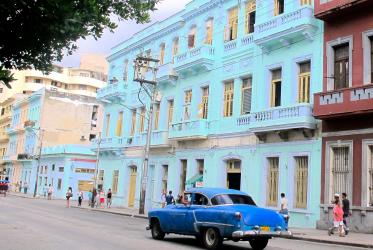Adopted by the WCC 10th Assembly as part of the Report of the Public Issues Committee.
Long-standing, complex issues of United States of America (US)-Cuba relations, affecting the people of both countries, have drawn the attention of the participants of the 10th Assembly of the World Council of Churches (WCC).
Relations between the US and Cuba have been strained by tensions and confrontations since the Cuban Revolution of 1959. The long-standing US embargo was reinforced in October 1992 by the Cuban Democracy Act and in 1996 by the Cuban Liberty and Democracy Solidarity Act. These acts prohibited US companies’ foreign-based subsidiaries from trading with Cuba, US citizens’ travel to Cuba, and foreign remittances to Cuba.
On 21 October 2013, 21 leaders of various Christian denominations in the US addressed a letter to the US president, urging the US to take concrete actions pursuing a path toward improved relations with Cuba. The letter specifically urged the president of the US to initiate direct, high-level dialogue with the Cuban government; to remove Cuba from the US list of state sponsors of terrorism; and to lift all restrictions on people-to-people travel between the US and Cuba. The delegates of the 10th Assembly of the WCC endorse the opinion of the US church leaders and the concerns and recommendations expressed by them.
The delegates of the assembly also noted that the United Nations General Assembly, on 29 October 2013, voted overwhelmingly for the twenty-second time to condemn the US economic embargo against Cuba. We believe that the economic, commercial and financial blockade against any country causes enormous pain to its people, especially the poor and vulnerable. In this context, the delegates of the 10th Assembly of the WCC urge the US government to lift the economic sanctions against Cuba and to normalize relations between the US and Cuba.
APPROVED

